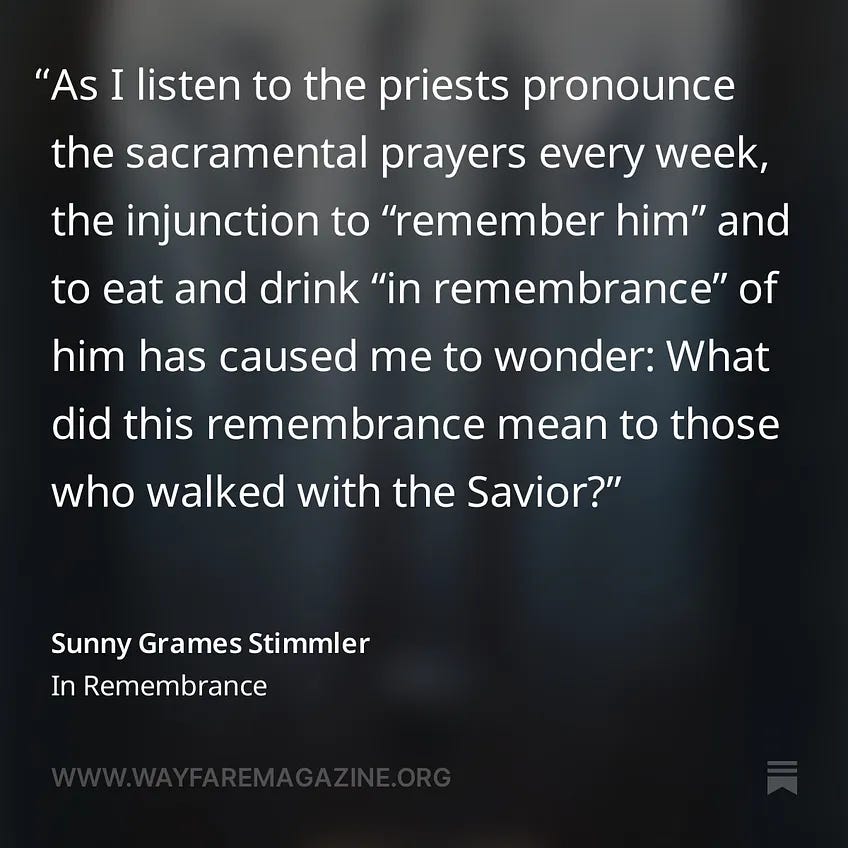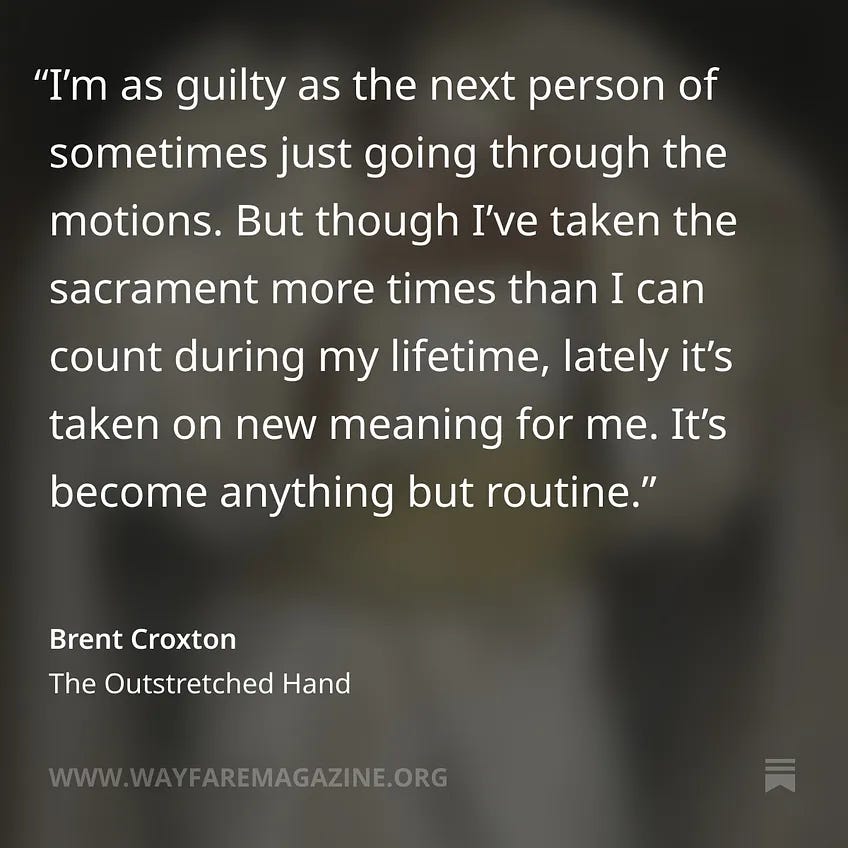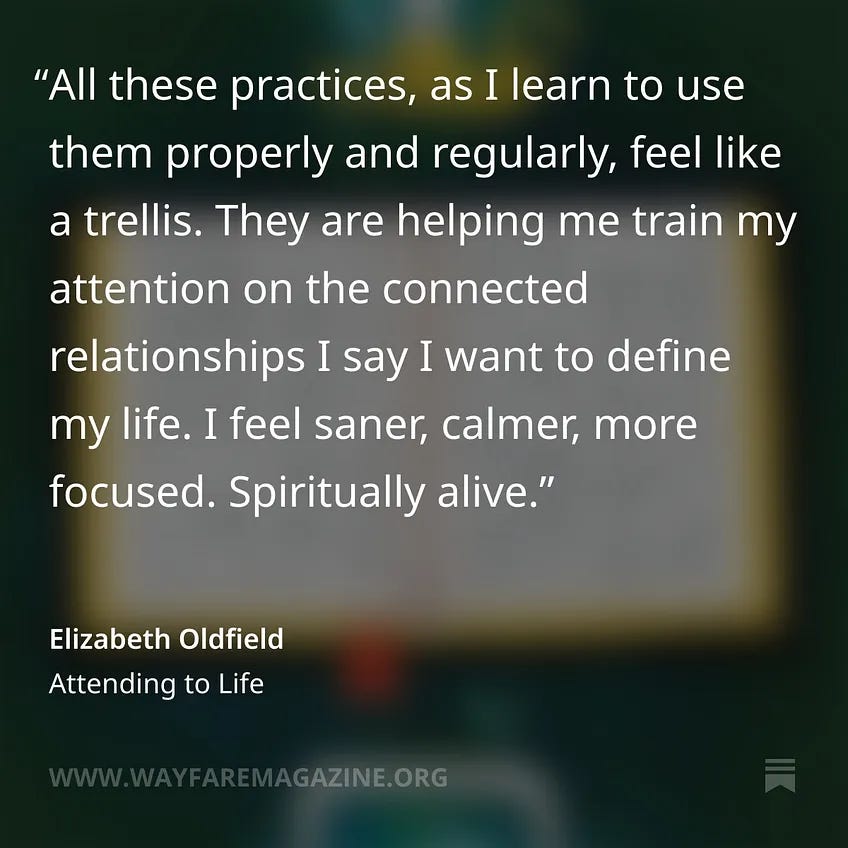What does it mean for all things to be done in order?
Faith Matters resources to accompany your Come Follow Me study: March 24-30

I take the sacrament in remembrance of Jesus Christ.
The Lord gives His servants priesthood keys to direct His work.
What is a prophet, and what is a priest? Why does it matter that the President of the LDS Church is both a prophet and a priest? How can better understanding each of those roles change how we experience our membership in the Church? Learn from Matthew Bowman in “The Prophet and the Priest,” an essay on WayfareMagazine.org:
In the Greco-Roman world of early Christianity, women were considered inferior to men. Dr. Ariel Bybee Laughton says Christianity offered new ways to think about the roles of women in society, and their power and authority waxed and waned over time. Listen to her discussion with Blair Hodges on her chapter “Church Organization: Priesthood Office and Women’s Leadership Roles” from the book Ancient Christians: An Introduction for Latter-day Saints in the Wayfare podcast “Meet the Early-day Saints”:
You can also listen to (or read a transcript of) our conversation with Barbara Morgan Gardner on The Priesthood Power of Women.
The armor of God helps me stand against evil. The armor of God protects me.
Read Elizabeth Oldfield’s essay on how spiritual practices can help shape our lives in “Attending to Life”:
And read Deidre Nicole Green’s thoughts on the temple garment in “Clothing Ourselves in Christ”:
Jesus Christ directs His Church through His living prophet. The prophet receives revelation for the Church; I can receive revelation for my life.
How have others navigated the tension between prophetic authority and personal conviction? Is it ever okay to try to change the Church?
Learn from the example of Eugene England in “When Conscience and Authority Seem to Collide — The Life of Eugene England,” and from Lowell Bennion in “Integrity and Institutions — A Conversation with George Handley on Lowell Bennion.”
Hear McArthur Krishna’s thoughts on how we can both sustain the prophet and be actively contributing to bless the Church, starting at about minute 40 of our conversation “The Cherished Doctrine of Heavenly Mother.”
“The Relief Society, the Young Women and the Primary all came because a woman had a good idea, and then she went to the Church and said, Hey, I got a good idea, I think we should do this. And the Church said, Hey, that's a good idea.
I 100% agree that the prophet and the twelve have stewardship in this. But it doesn't mean that all good ideas only come from that place. And again, this is not an either/or. This is not a challenge to authority. This is not a rabble-rousing. This is saying, I'm contributing. And if I have a good idea that I can contribute, then it behooves me to contribute.”
—McArthur Krishna
Learn more about how the Church has changed over time and the role ordinary members have played in “Our Beautiful, Messy, Unfolding Story - A Conversation with Lisa Olsen Tait & Scott Hales.”
Read Tim Chaves’ thoughts on how prophetic revelation might work, and what our role in that process might be, in, “Is it ok to try to fix the church?”
And learn from Patrick Mason in “Searching for Infallible Prophets?” and “Can I trust and sustain fallible leaders?”
As a Christian I’m only secondarily interested in God’s prophets and apostles. To focus on them is to miss the point. Doing so is like a person wearing glasses training their gaze on their lenses rather than looking through them at the world beyond. Latter-day Saint prophets and apostles serve as corrective lenses in a secular age, but they don’t offer a perfect prescription. In this life we will always “see in a mirror, dimly.” Even living prophets, themselves trapped on this side of the veil, cannot provide perfect clarity or get us to 20/20 vision. The lenses themselves get smudged, chipped, and cracked from the wear and tear of the world. But the collective experience of the Church of Jesus Christ of Latter-day Saints is strong testimony that looking through this particular set of lenses is a reliable means of focusing our gaze on how to follow the Savior Jesus Christ in the modern world.
In short, the church can confidently rely on its living prophets—not blindly, but with discernment, individual choice, and always with the “patience and faith” that God’s redemptive work in the world is bigger than we can often see. We sustain the prophets not because of their own merits but insofar and inasmuch as they preach “the word of Christ with unshaken faith in him, relying wholly upon the merits of him who is mighty to save.” (2 Nephi 31:19; see also Moroni 6:4.)
Latter-day Saints are not Smithites, or Nelsonites, or even Mormonites. We are Christians. We look not to our prophets but with them to “Jesus the author and finisher of our faith.”
—Patrick Mason, “Searching for Infallible Prophets?”
Go deeper with The Big Questions Project: In the past, church leaders have made some significant mistakes. How much should I rely on pronouncements and teachings of our leaders today?
Why was a mission to the Lamanites significant?
Listen to Patrick Mason’s chapter on this topic from Restoration: Restoring the People of God
The stories of original Israel and the Lamanites are, to a significant degree, stories of suffering. As their histories played out, both peoples were scattered, despised, persecuted, marginalized, and they dwindled… God's word holds out special promises for the Lamanites because God's heart beats in sympathy with his oppressed and marginalized children.
…The Saints of the nineteenth and twentieth centuries felt confident about where and how to find scattered Israel and the Lamanites. In century we have become humbler about our ability to identify precisely who is in each group. If we presume that the ten tribes of Israel are still by and large lost, and if because of DNA testing we no longer have condence in who or where the descendants of the Lamanites are, then to some significant degree I think we have to leave it directly in the Lord's hands to bring about those particular restorations. That leaves us with the task of restoring to wholeness those children of God in our contemporary world whose experiences are primarily those of suffering and marginalization—those in whom we can hear the echoes and see the image of original Israel and the Lamanites. Those who are despised, and rejected, and scattered. Those who are deemed by some as filthy… That's where God's particular work of restoration will happen today, as part of the general restoration of all his people.
…Followers of Christ therefore have a special calling to the poor, the brokenhearted, the captives, the blind, the bruised—both our sisters and brothers immediately in our midst as well as those who find themselves in dire circumstances anywhere in the world.
So what is being restored in the Restoration? God's people.
The poor will receive the kingdom of heaven. The brokenhearted will be healed. The captives will be liberated. The blind will see. The bruised will be made whole.
In the ultimate sense, this is the work of atonement and reconciliation that only our Savior Jesus Christ can fully accomplish. But in the more immediate sense, the call of the Restoration is for each recipient of Christs redeeming love to extend that grace by co-participating with him as “saviors... on Mount Zion.”
That salvation cannot and will not wait for the next world.
The restoration of God's people is here. The restoration of God's people is now.
—Patrick Mason, Restoration





